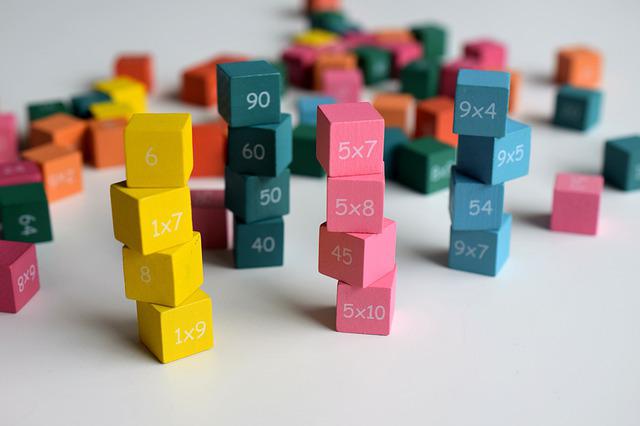It is no secret that kids often find math challenging. However, in most cases, this hurdle is down due to the curriculum structure and the way teachers approach math lessons.
Depending on students’ levels, instructors must adopt different approaches to ensure they make learning math for kids fun. While teaching second-grade math, tutors should not handle kids as they did in the first grade. The same goes for more advanced classes and topics.
But irrespective of your child’s math level, there are general tips for making math lessons fun. This article will analyze some of them.
Table of Contents
Include photos and pictures in your lesson
When teaching kids, have a pictorial representation of concepts. The best resources on math for kids online contain numerous pictures representing mathematical equations and problems. You can use arithmetic picture books, frames, or sketches.
You should remember that pictures alone do not do the trick; encourage your kids to read aloud. When kids learn to explain given pictures, it will aid their retention rate and foster better understanding.
Encourage game-based learning
Gone are the days when learning math was all about carrying heavy texts and solving complex mathematical equations. Today, there are numerous fun math games for kids online and offline that you can use to get the best out of your kids. As an instructor, you must explore the advantages games present.
All you have to do is teach children how to play these games, sit back, and watch how the approach transforms your kids into expert mathematicians. However, you must limit the time children spend playing games; otherwise, it would be counterproductive to their academic performance.
Allow your kids to express themselves
Kids enjoy the chance to express themselves and feel that their thoughts count. Capitalize on a kid’s need for attention by allowing them to ask and answer questions and handle presentations in front of their peers.
Giving your kids an opportunity to communicate and crack concepts that seem difficult is an ideal way of unlocking their problem-solving and critical-thinking abilities. With time, kids can ask questions and interact conveniently.
Prioritize asking questions
There is no better way to know if your kids are following their math lectures than by asking questions. As mentioned above, asking questions allows kids to express themselves and know if they are making progress.
The mistake most teachers make is asking their kids close-ended questions that require a “Yes/ No” answer. Try open-ended questions where kids have to explain things based on their understanding. If you adopt this method of asking questions, your kids will become more inquisitive and always try to impress in class.
Make the class schedule engaging
Keeping your kids engaged can unlock the math potential of your students. Use online math for kids to ensure they are constantly engaged in learning. You can repeat concepts and topics to ensure your kids understand them fully.
Present one concept at a time during a lesson, irrespective of how long it takes to understand. Let your kids know what to expect. Routines eliminate time wasting since you know what to teach. When routines are exciting, pupils are more likely to pay attention.
Make your class kids-centered

Most educators neglect the importance of students working together to achieve results. Having a cooperative classroom ensures that nobody is left behind. Before the start of an academic session, engage your kids and ensure they are ready to work with you and their peers.
Also, please notice what your kids want and their distinct learning patterns, and shape your class accordingly to fit their needs. Children learn in different ways, so understand which approach works best.
Make the Internet your co-teacher
Instructors must make the Internet their teaching companion since there are numerous advantages technology offers students and teachers. There are educational resources like online worksheets, games, cartoons, and stories you can explore with your kids. These activities will help kids learn mathematics and have all you need to engage your kids in their free time.
The internet has become a valuable resource tool for educators for years now. It does not matter what concept you want; educators can quickly get any material online.
Use everyday objects
Kids will find learning difficult if they spend hours facing abstract concepts and signs. Relieve your kids the stress of trying to understand complex concepts by introducing everyday objects to your math classes. For many adults, the most memorable math experience is when tutors use real-life objects to represent equations and concepts.
Some objects you can use are wooden blocks, toys, etc. Your creativity is essential in this regard and significant in helping your kids master math subjects like graphs, geometry, and basic arithmetic.
Move around while teaching
When tutoring kids, you must remember that they learn differently from adults. While adults learn irrespective of whether a tutor sits or lies down, kids learn better when a tutor stands and moves around.
Also, your students must not sit the whole time; ensure they stand and walk about regularly. You can incorporate activities like short breaks or make them form a group and engage in play-based activities.
Teach kids to be positive
Forget about complicated math; let your kids know it is easy, and they only need to add a little effort. Mastering math requires a positive mindset and willingness to learn. It would be more challenging to learn if they develop anxiety and become scared of math.
Positivity can help kids be confident and develop their sense of independence. When they are confident in their ability to solve math problems or at least try, they will get on course to become expert mathematicians.
Conclusion
Learning math by having fun is the best way to ensure kids don’t develop a disinterest in the subject. The tips in this article will help your kids become experts in mathematics. Combine them at your discretion based on your student’s needs and your classroom’s facilities, and watch your kids become phenomenal mathematicians.
Try to Build a Garden Math Game
Featured Image by an_photos from Pixabay




